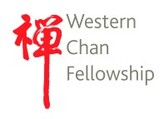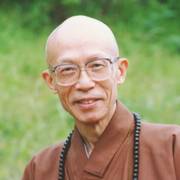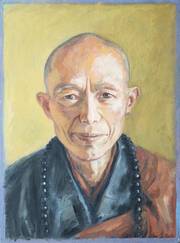Dharma Library
A large collection of articles, from past issues of New Chan Forum and more besides.
Search by keywords, using the search box
Or select articles by various categories such as for newcomers / highlighted, topic or author - click on the buttons found below the listed articles.
-
Is the View of Practice More Important than Practice Itself
Chan Master Sheng Yen |Read more of: Is the View of Practice More Important than Practice ItselfPublished with permission and lightly edited from Chan Magazine. Spring 1994 11-15.
Shifu, I have a question. A Chan aphorism says, "The practice is important but the view of practice is even more important." It seems to me this is a contradiction of Chan because any view I hold must be subjective and a distortion of truth and therefore an obstruction. If the ego goes away in the experience of… -
Not Knowing is Knowing
Chan Master Sheng Yen |Read more of: Not Knowing is KnowingA lecture given on retreat at the Meditation Centre, New York, reprinted by kind permission from the Chan Magazine Fall 1993 p19 and slightly edited for this presentation.
Knowing dharmas is not knowing Not knowing is knowing the essential... The highest principle cannot be explained: It is neither free nor bound Lively and attuned to everything It is always right before you. 1
The Chan sect…
-
A Mind like Snow
Chan Master Sheng Yen |Read more of: A Mind like SnowGiven on November 14th 1993, published in Chan Magazine, Winter 1995. Presented here lightly edited with permission.
In day to day living, you may find it extremely difficult to settle the mind. It might seem that the only time the mind feels settled is when there is nothing to do. When something happens, either externally or internally, or when you encounter gain or loss, the emotions are…
-
Always Harmonise with Living Beings
Chan Master Sheng Yen |Read more of: Always Harmonise with Living BeingsText selected from 'The Compassionate Vows of Bodhisattva Samantabhadra'. Chan Magazine Winter 1993 with permission. Lightly edited.
'Living beings' means all sentient beings. Harmonising with living beings means giving to sentient beings whatever they wish. Even so, if they ask for your head, do you give it to them? If they ask for your body, do you give it to them? If they ask for your money,…
-
Chan and Psychoanalysis
Chan Master Sheng Yen |Read more of: Chan and PsychoanalysisThis dialogue is reprinted with permission from the Institute of Chung Hua Buddhist Culture in New York. It was first published in Chan Magazine Volume 12, Number 4, Fall 1992.
Question: How is Chan similar or different from psychotherapy? Is the relationship between student and Master similar to that of patient and therapist?
Shifu: There are similarities and differences. The goals of Chan are…
-
A Small Insect Cannot Stop a Chariot
Chan Master Sheng Yen |Read more of: A Small Insect Cannot Stop a ChariotExcerpts from a talk given at the Chan meditation Center, New York, edited with permission by John Crook. Published in Chan Magazine 12.1. Winter 1992 pp18-21
Even if an iron wheel whirls in your head perfect clear samadhi and wisdom are never lost.
You cannot cling to the idea that the genuine wisdom of enlightenment has concrete existence. Yet, if you accept and realise Dharma, then you will…
-
Life in a Chan Monastery
Chan Master Sheng Yen |Read more of: Life in a Chan MonasteryLecture by Master Sheng-yen at the University of Toronto on October 18th 1991. Edited text by permission from Chan Newsletter No.92, May 92
In ancient Chinese monasteries a practitioner's time was divided between meditation, attending Dharma talks and daily work. Morning and evening was spent in meditation, daytime was for working. We are somewhat ignorant of the daily schedule in early Chan…
-
The Importance of Buddhadharma in the Modern World
Chan Master Sheng Yen |Read more of: The Importance of Buddhadharma in the Modern WorldLecture by Master Sheng-yen on October 13, 1991. Reprinted with permission from Chan Newsletter 89, November 1991.
The world we live in has a genuine need for Buddhadharma. There are many fine things in the modern world, but there is much that is less than desirable. The world is becoming smaller and more crowded and people are getting busier and busier.
As a child, I read a Chinese novel called…
-
Human Conciousness in the Chan Perspective
Chan Master Sheng Yen |Read more of: Human Conciousness in the Chan PerspectiveEdited version of a lecture delivered by Master Sheng-yen at Brooklyn College on November 8, 1990. From Chan Newsletter No.84, March 1991, with permission.
Buddhism generally divides human consciousness into False Mind and True Mind. False Mind, sometimes called the illusory mind, refers to the mental activity of ordinary sentient beings. This mind is filled with innumerable vexations that arise…
-
Thus Come, Thus Gone
Chan Master Sheng Yen |Read more of: Thus Come, Thus GoneA special lecture given by Master Sheng-yen at the Chan Center, New York, on 4th November 1990. First published in Chan Newsletter No. 98, July 93 and reprinted here, slightly edited, with permission.
Chan is "thus come, thus gone." Everything is Chan; this is "thus come." Nothing is Chan; this is "thus gone." Today I want to investigate these words. I think they will give you new insights into…
Featured
By author
More
©Western Chan Fellowship CIO 2025. May not be quoted for commercial purposes. Anyone wishing to quote for non-commercial purposes may seek permission from the WCF Secretary.
The articles on this website have been submitted by various authors and the views expressed do not necessarily represent the views of the Western Chan Fellowship.
Permalink: https://w-c-f.org/Q358


